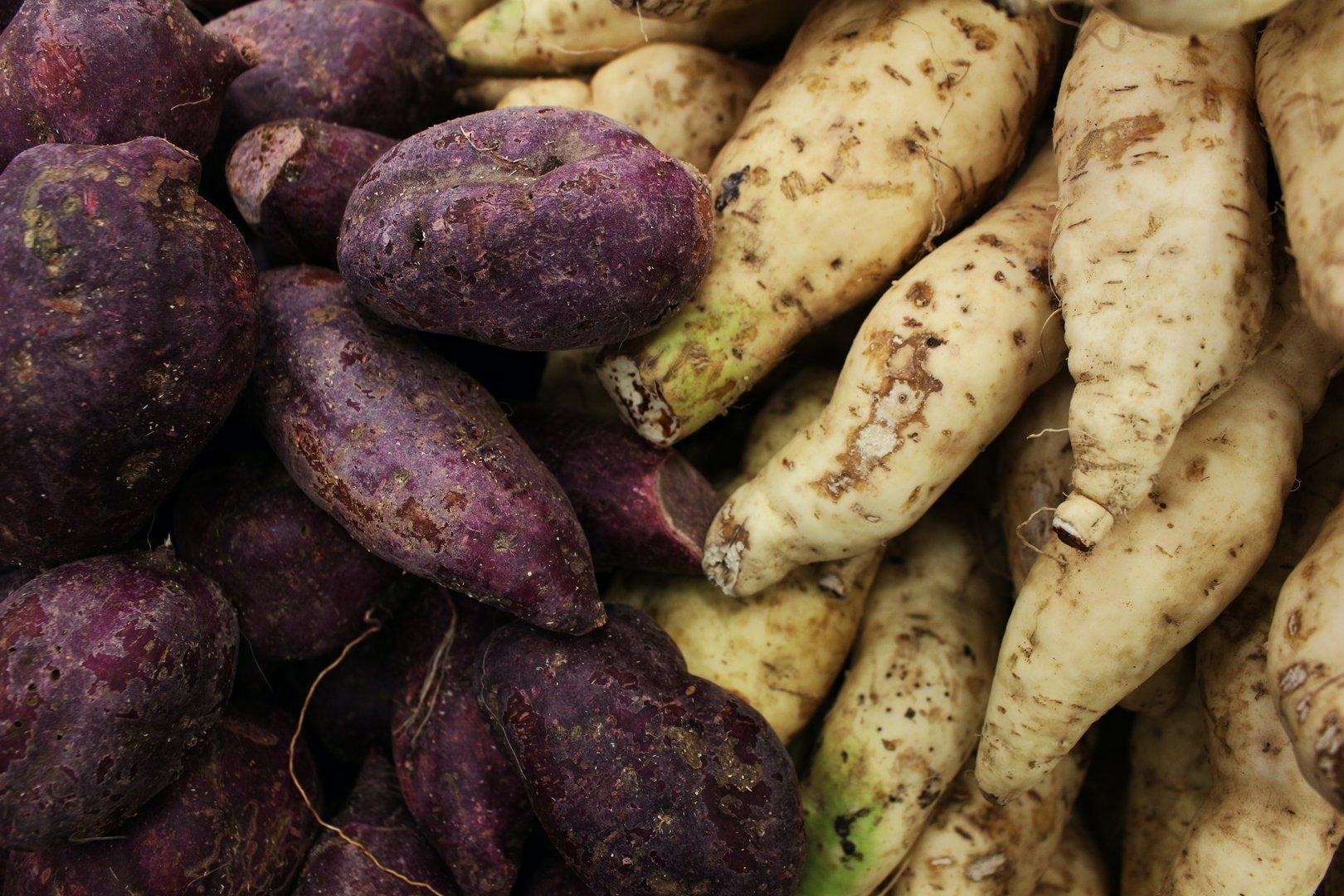Unlocking The Health Benefits Of Purple Potatoes
Unlocking The Health Benefits Of Purple Potatoes
Unlocking The Health Benefits Of Purple Potatoes

Introduction
Ever heard about the purple potato? It’s a health-packed version of the regular potato. Just picture sinking your teeth into a potato that is as rich in health benefits as it is in colour and taste!
In today’s blog post, we’ll dive into all things purple potato! From where they came from to what sets them apart from other potatoes – we’ve got it all covered. Additionally, we will share some simple cooking tips and answer common questions.
Overview of Purple Potatoes
Purple potatoes aren’t a modern-day find. People living in South America’s Andes mountains have been eating them for hundreds of years. Its deep-purple hue adds a pop of colour to any meal.
Historical Context and Origin
Like its yellow and white siblings, the purple potato is a member of the Solanum tuberosum family. They originated from the Andes in South America. Here, they have been grown for over 8000 years!
Brief on Unique Features (Colour, Taste, Texture)
What makes purple potatoes special? Their stunning colour, taste, and texture! The colour ranges from blue-purple to near-black. On cooking, they retain the purple colour, making a feast for the eyes. As for taste, it has a hint of earthiness and nuttiness. The texture is denser, giving you a hearty bite.
Nutritional Profile of Purple Potatoes
Now, let’s shed some light on what’s behind the pretty face of purple potatoes.
Macronutrients
Purple potatoes pack in important macronutrients. They are rich in carbs, our body’s energy source. They also offer a decent amount of protein to build and repair tissues.
Vitamins and Minerals
But that’s not all! Purple potatoes are chock-full of multiple vitamins and minerals. They are packed with nutrients like manganese, copper, iron, potassium, vitamin B6, and vitamin C.
Phytochemicals and Antioxidants
What sets them apart is their high content of phytochemicals and antioxidants, especially anthocyanins. This antioxidant is responsible for its deep purple colour and its numerous health benefits.
Let’s have a quick look at the table below to get a clear idea about their nutrition.
| Nutritional Parameters | Quantity (Approximate) |
| Calories | 130 calories |
| Protein | 2 grams |
| Carbohydrates | 30 grams |
| Fats | 0 grams |
| Fiber | 4 grams |
| Vitamin C | 17% of the DV |
| Potassium | 15% of the DV |
The Power of Purple: Health Benefits
Ever wondered why this purple delight has become so popular lately? Let’s talk about the health perks they offer.
Highly Nutritious
Despite being seen as starchy, purple potatoes are quite nutritious. They have similar nutrient values as other potatoes and even edge out some in their mineral value.
Effect on Blood Sugar Levels
Purple potatoes are better for blood sugar levels compared to white or yellow ones. Their high polyphenol content helps control blood sugar spikes.
Antioxidant Capabilities
Did you know? These purple beauties come loaded with antioxidants. In fact, they hold two to three times more antioxidant power than white or yellow potatoes.
Protecting Heart Health
Having these colourful tubers regularly can boost heart health. The high potassium helps lower blood pressure, and their rich antioxidant content also plays a huge role.
Relationship in Reducing Risk of Cancer
Recent studies show that purple potatoes may help fight cancer. Lab tests reveal that their antioxidants can limit or even destroy some types of cancer cells.
Contribution to Dietary Fiber Intake
Fretting about how to wow your dinner party guests? Try using purple potatoes! They will add a splash of color to your dishes and they’re also fun to prepare.
Suggestions for Incorporating into Diet
There are endless ways to enjoy purple potatoes. Whether in a veggie bake, in potato salad, or adding a unique spin to mashed potatoes, they will bring health benefits and colours to your table.
See the table below for the unique health benefits purple potatoes offer:
| Health Benefits | Description |
| Highly nutritious | Packed with vita-nutrients; more potassium than a banana. |
| Better for blood sugar | Their high polyphenol compounds may minimize the impact on blood sugar levels. |
| Antioxidant-rich | Abundantly loaded with antioxidants. Help fight harmful free radicals in our body. |
| Good for heart health | Can reduce blood pressure and arterial stiffness. Assist in keeping your heart healthy. |
| Might help combat cancer | Research indicates potential cancer-fighting capabilities. |
| Improved dietary fibre intake | Help in increasing your dietary fibre intake, promoting good gut health. |
| Aesthetic and culinary appeal | Adds a pop of colour and a rich body to your meals. |
No comments yet. Login to start a new discussion Start a new discussion